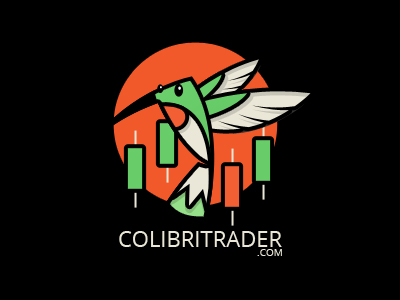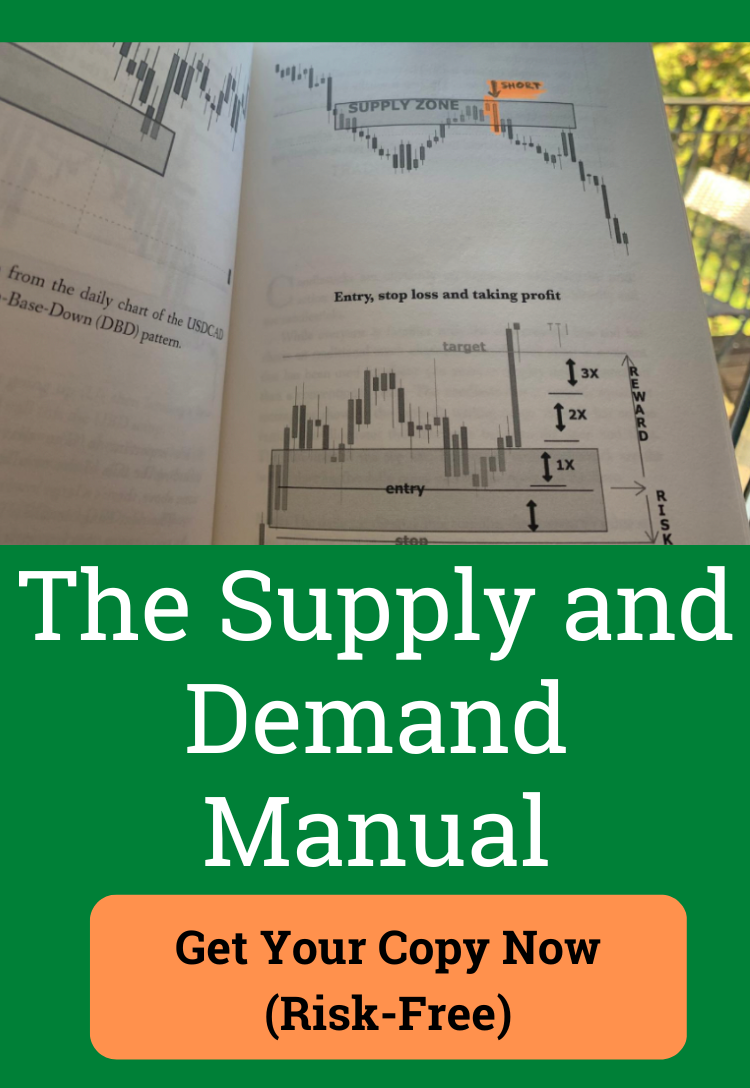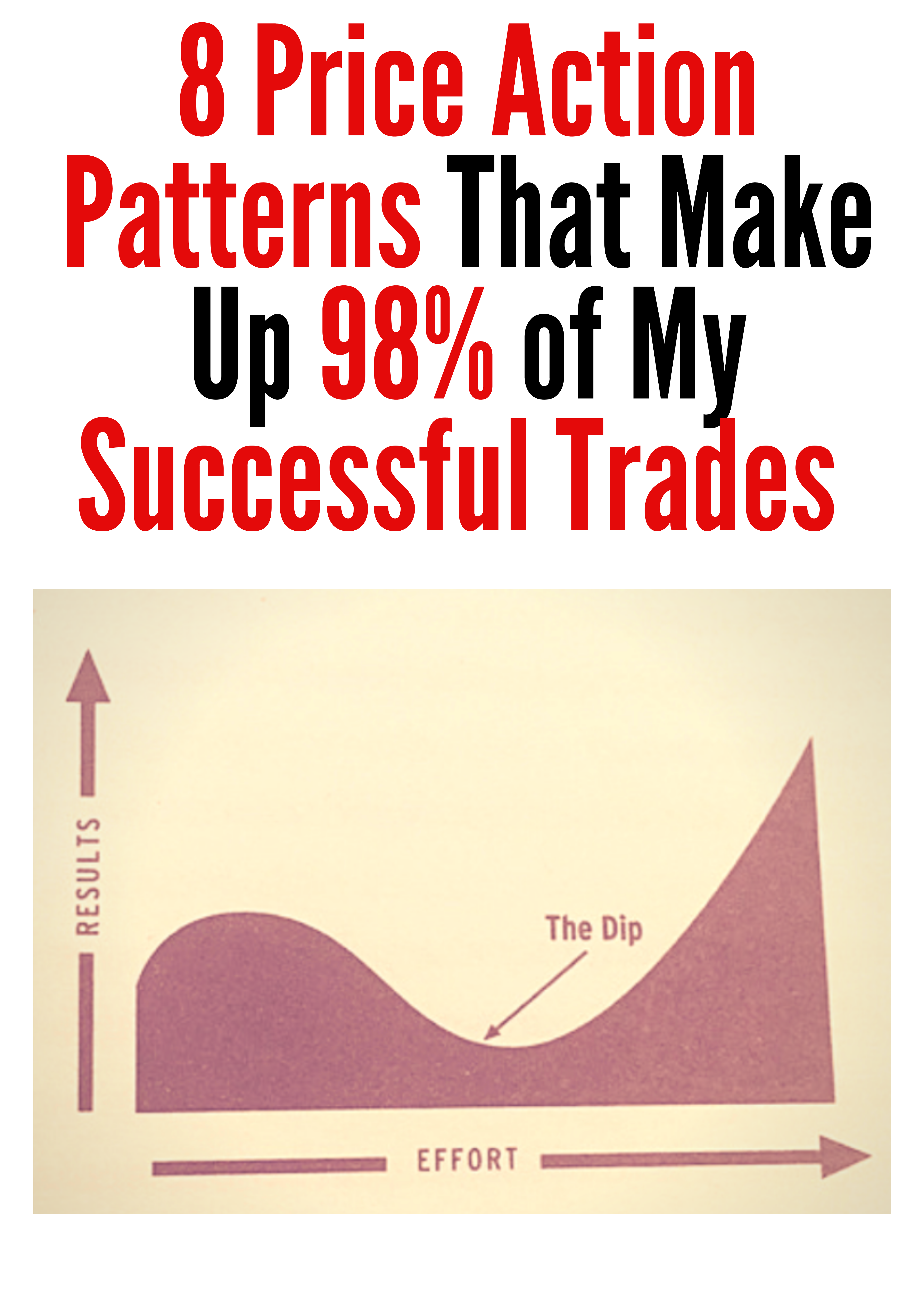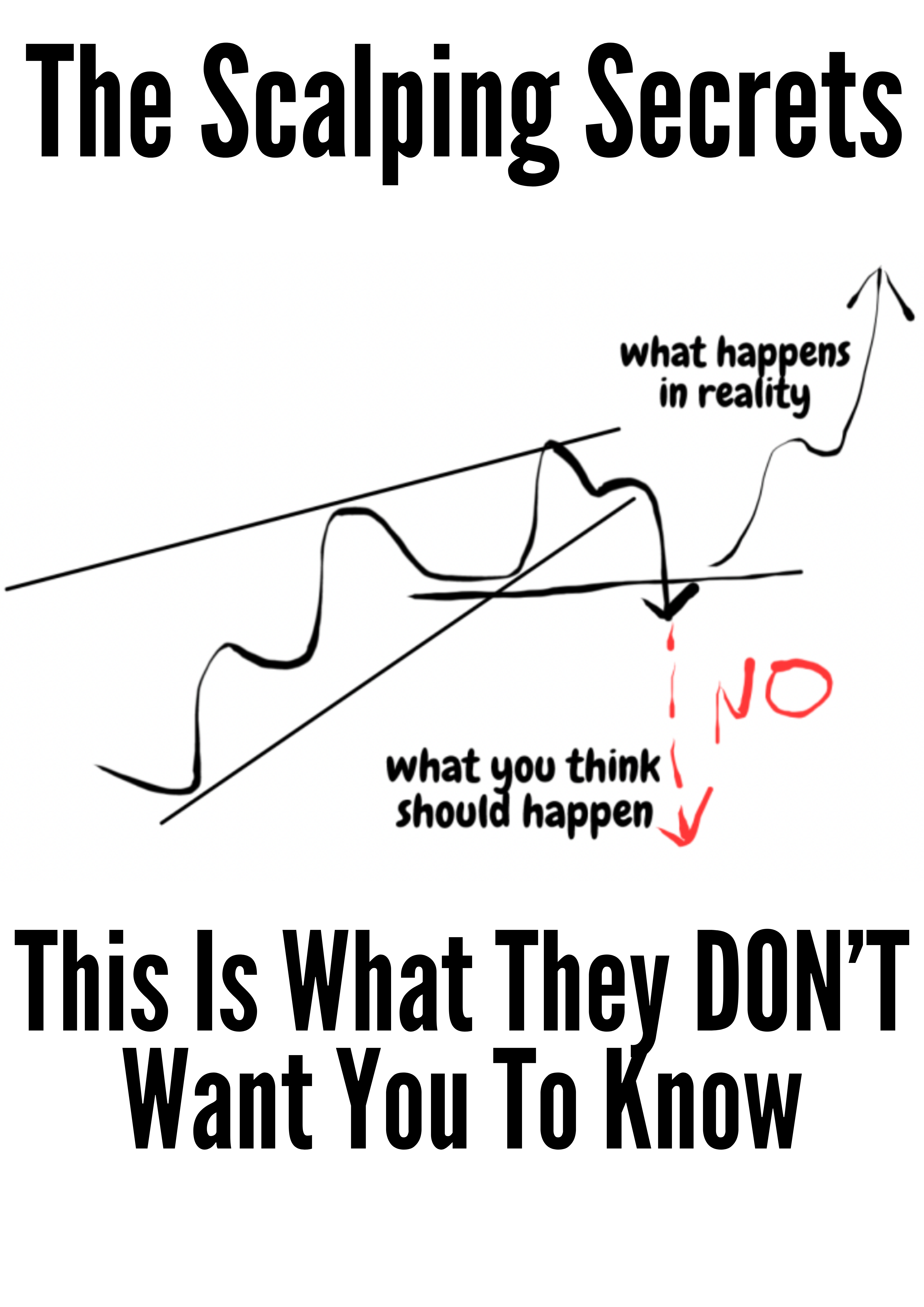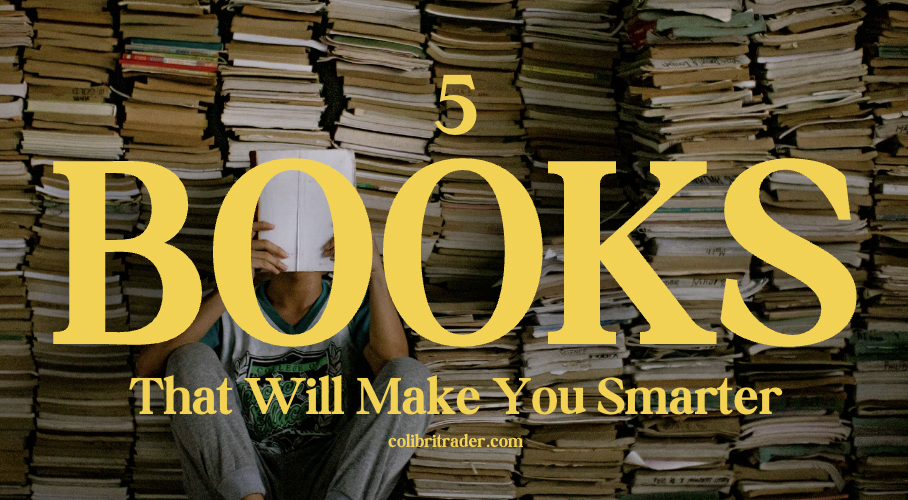5 Books That Will Make You Smarter (and Expand Your Worldview)
Introduction
In a world of information overload, finding books that genuinely challenge our thinking and reshape our perspectives on life can feel like hunting for buried treasure. But expanding our mental horizons matters now more than ever. The ideological bubbles and confirmation biases in today’s media landscape make it all too easy to remain trapped in intellectual echo chambers that merely reinforce our existing views.
This curated list cracks through these walls by highlighting 5 thought-provoking reads spanning science, history and personal growth. Think of it as a treasure map directing you straight to the motherlode of mind-expanding gems guaranteed to push your boundaries and leave you smarter for the journey ahead.
The Benefits of Broadening Your Intellectual Landscape
Before highlighting the books themselves, let’s consider why it really pays to make space for ideas that disrupt our worldviews.
Sharpening Critical Thinking Skills
In the realm of intellectual growth, sharpening critical thinking skills is akin to honing a finely tuned instrument. It involves immersing ourselves in a diverse array of schools of thought, deliberately exposing our minds to a spectrum of ideas, philosophies, and perspectives. This intentional exposure serves as a rigorous exercise for our cognitive faculties, fostering the development of analytical prowess, thoughtfulness, and resilience in the face of opposing viewpoints.
1. Analyzing Ideas Objectively:
When we actively engage with a variety of thoughts and opinions, we cultivate the ability to approach information with objectivity. This means detaching ourselves from personal biases and preconceptions, allowing us to assess ideas on their merit rather than through the lens of our own beliefs. Analyzing ideas objectively requires a mental flexibility that allows us to consider multiple angles and interpretations, enriching our understanding of complex issues.
2. Asking Thoughtful Questions:
Critical thinking is propelled by curiosity, and exposure to diverse schools of thought encourages us to ask thoughtful questions. These questions go beyond surface-level inquiries, delving into the underlying assumptions, motivations, and implications of different viewpoints. The art of asking thoughtful questions is transformative, as it deepens our comprehension of the subject matter and stimulates meaningful conversations that contribute to collective knowledge.
3. Avoiding Knee-Jerk Reactions:
In a world where information bombards us from all directions, the ability to resist immediate, instinctive reactions is invaluable. Critical thinking allows us to pause, reflect, and consider alternative perspectives before responding. By avoiding knee-jerk reactions, we ensure that our responses are measured, well-founded, and conducive to constructive dialogue. This skill becomes especially crucial in the face of conflicting ideas, as it enables us to navigate disagreements with composure and open-mindedness.
4. Muscles of Discernment:
Critical thinking can be likened to a set of muscles, with each exposure to diverse thoughts acting as a workout for our discernment. These mental muscles grow stronger as we grapple with complex ideas, challenging our cognitive capacities. The more we exercise our discernment, the better equipped we become to navigate the nuances of an increasingly complex world. These muscles allow us to sift through information, identify logical fallacies, and extract meaningful insights from the noise of conflicting opinions.
In essence, the process of sharpening critical thinking skills through exposure to diverse schools of thought is a transformative journey. It equips us not only to engage with the richness of human intellect but also to contribute meaningfully to the collective wisdom of our global society. As we exercise these mental faculties, we not only refine our individual thinking but also contribute to the broader tapestry of informed and considerate discourse.
Strengthening Mental Flexibility
In the intricate dance of intellectual growth, strengthening mental flexibility emerges as a key partner, guiding us through the twists and turns of evolving perspectives. This facet of cognitive development involves a deliberate and courageous act — the willingness to allow our deeply held positions to be challenged. In doing so, we cultivate intellectual humility and flexibility, transforming our minds into dynamic entities capable of adapting to new evidence, embracing diverse viewpoints, and prioritizing the pursuit of truth over the preservation of ego.
Sparking Personal Growth
The ignition of personal growth is a captivating journey fueled by the seeds of ideas, carefully sown and nurtured over time. Much like planting a garden, the ideas encapsulated in books act as potent seeds, possessing the transformative potential to blossom unexpectedly and catalyze profound changes in our lives. When we delve into books that challenge and expand our perspectives, we embark on a journey that lays the essential groundwork for breakthroughs, setting the stage for personal evolution and self-discovery.
The 5 Most Mind-Expanding Reads
- A Short History of Nearly Everything by Bill Bryson
“‘Somebody asked me the other day if I believe in alternate universes. I said no, I’m still trying to find my way around this one.” — Bill Bryson
Why It Broadens Your Thinking:
This rollicking adventure through the history of scientific discovery explores disciplines we often overlook, from quantum physics to plate tectonics. It leaves us awestruck by the remarkable intricacy of the natural systems that orchestrate life itself. Bryson’s witty storytelling makes digesting complex concepts feel effortless.
Key Takeaways:
- A deeper appreciation for the interconnected nature of the cosmos we inhabit
- Heightened wonder around details of existence we normally take for granted
- Motivation to keep probing the endless mysteries yet to be unlocked
- Guns, Germs, and Steel by Jared Diamond
Why It Broadens Your Thinking:
This Pulitzer Prize winner takes a cross-disciplinary scour of history, geography, and anthropology to investigate how Western civilizations rose to power vs. others. Diamond convincingly argues that environmental and agricultural advantages underpinned societal developments, dispelling inherited notions of racial superiority.
Key Takeaways:
- A shift from cultural assumptions to evidence-based perspectives on what shapes societies
- An appreciation that opportunity often stems from luck more than inherent exceptionalism
- Greater context around global inequities that still echo today
- Thinking, Fast and Slow by Daniel Kahneman
Why It Broadens Your Thinking:
This seminal work by a Nobel economist identifies the blind spots and biases wired into human reasoning, with insights that can refine how we evaluate ideas and make decisions. It explains how emotion and cognitive shortcuts undermine the reliability of intuition, making the case for vigilant critical thinking.
Key Takeaways:
- Humility in acknowledging the limits of your own objectivity
- Wariness about claims appealing primarily to emotion over evidence
- Systems to catch the inevitable yet often invisible pitfalls in logic
- The Righteous Mind by Jonathan Haidt
Why It Broadens Your Thinking:
This book examines the instinctive gut reactions that dictate our moral convictions far more than rational deliberation. It suggests we self-servingly arrive at political affiliations first and then craft justifications second. These insights around moral psychology help explain political polarization.
Key Takeaways:
- Caution in assuming you evaluate ideas based solely on their objective merits
- Strategies to genuinely understand opposing ideologies vs. merely scrutinizing to refute them
- Motivation to bridge divides by affirming shared values before debating policy
- Mindset by Carol Dweck
Why It Broadens Your Thinking:
This research-backed book unpacks how static versus growth mindsets drive our relationship to challenge and failure, radically shaping outcomes. It suggests change springs not from innate talent but our response to difficulty. This premise ripples into all aspects of achievement.
Key Takeaways:
- Self-awareness around personal tendencies to either embrace or avoid struggle
- Inspiration that grit trumps giftedness when gauging potential
- The drive to view trials as stepping stones rather than stumbling blocks
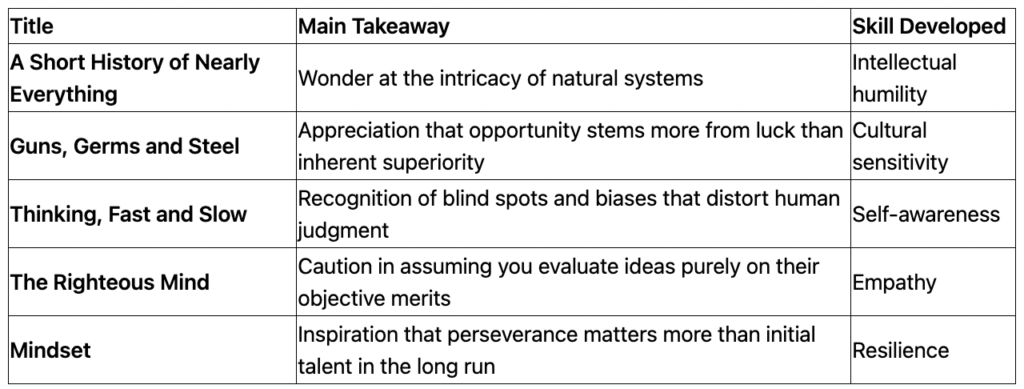
Conclusion
Expanding our thinking is a proactive endeavor that involves actively seeking books that challenge our default perspectives. The list provided showcases diverse selections, illustrating numerous avenues to challenge and transform stale assumptions when approached with an open mind.
While reading these works in their entirety promises rich rewards, even engaging with summaries or discussing them with others can spark valuable insights. There is merit in exploring traditions of thought we disagree with, fostering understanding rather than promoting attack. As we learn to hold convictions loosely, recognizing the partial nature of our knowledge, we gain the agility to update our views with emerging evidence. This flexibility opens up glimpses of higher truth. The wisdom of endlessly questioning and exploring ideas is a trait of the smartest individuals.
No matter where one stands intellectually today, the conclusion reassures that a broader world of wisdom awaits, ready to elevate one’s vision. The call to let these mind-expanding books launch a journey to greater places is an invitation to embark on a voyage of self-discovery and enlightenment. Bon voyage!
Take a moment to reflect on the titles that linger in your mind long after you turned the last page. Whether they are classics that have withstood the test of time or hidden gems that deserve more recognition, your recommendations can become guiding lights for fellow readers seeking transformative experiences. Share your favorites so others can discover overlooked gems!
